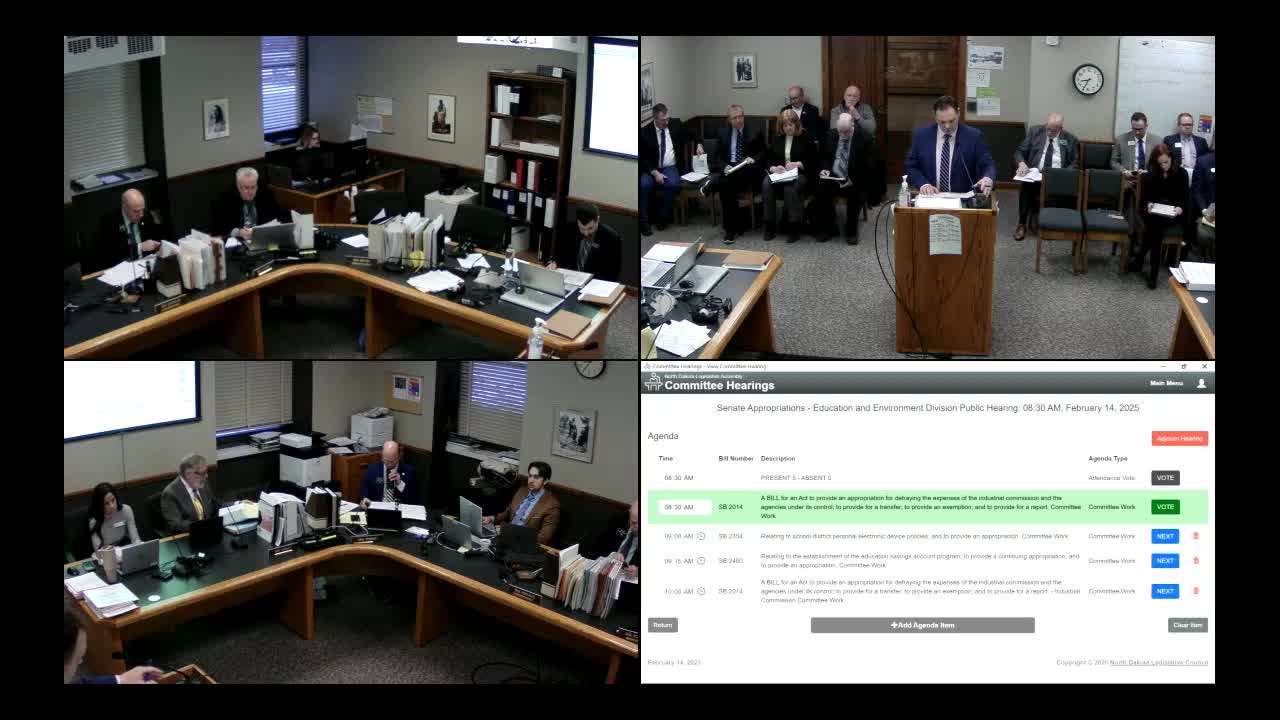Article not found
This article is no longer available. But don't worry—we've gathered other articles that discuss the same topic.
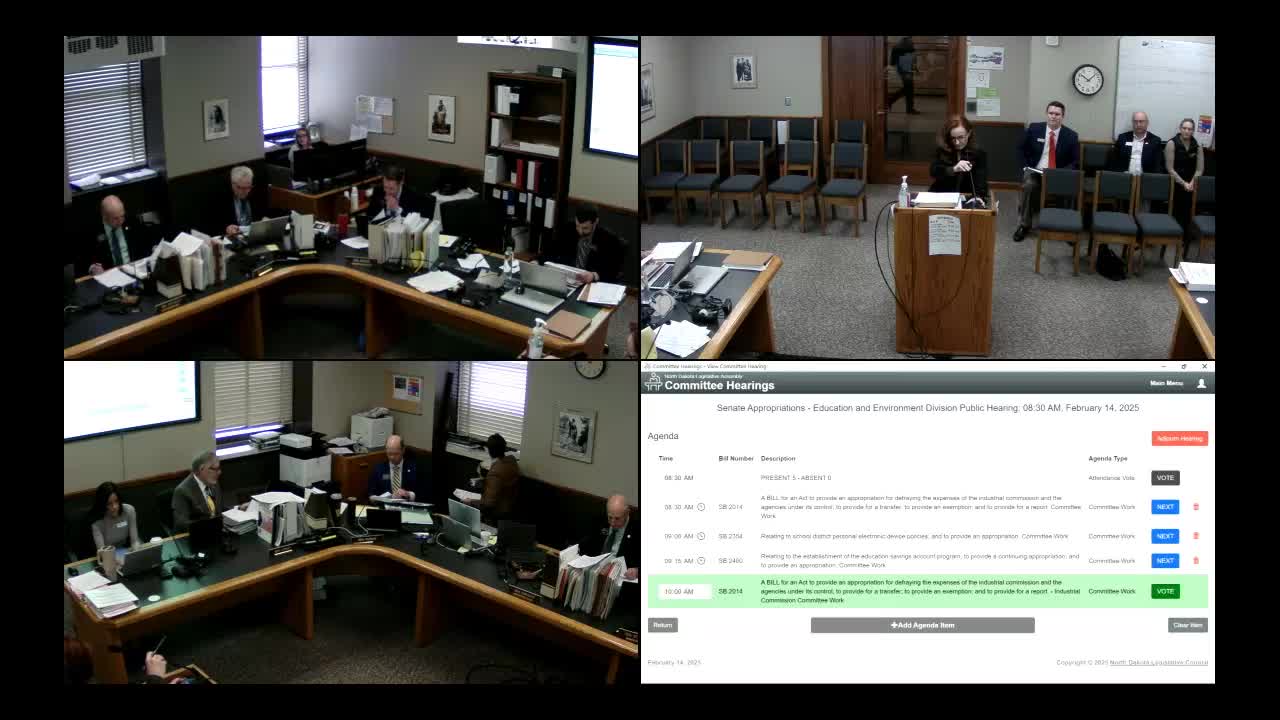
Appropriations committee reviews Industrial Commission carryovers, flags Salt Cavern study for further consideration
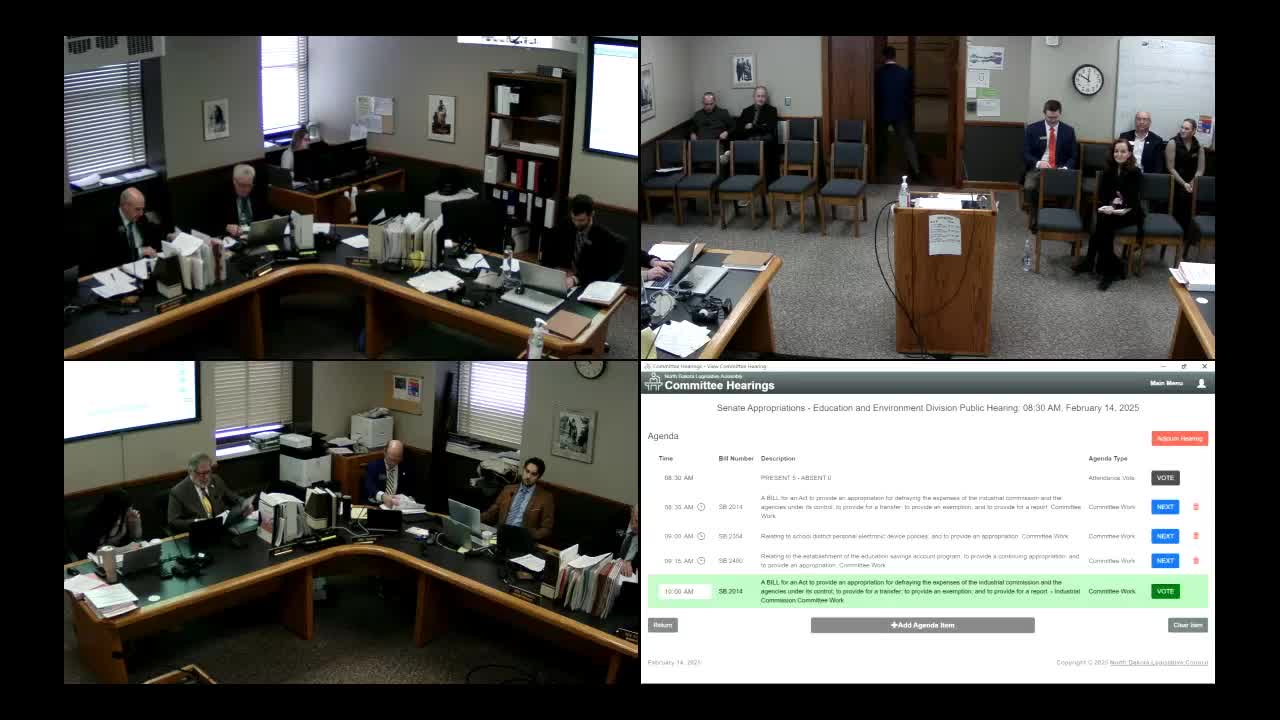
Appropriations committee grants Bank of North Dakota limited training spending authority and tweaks SBDC funding
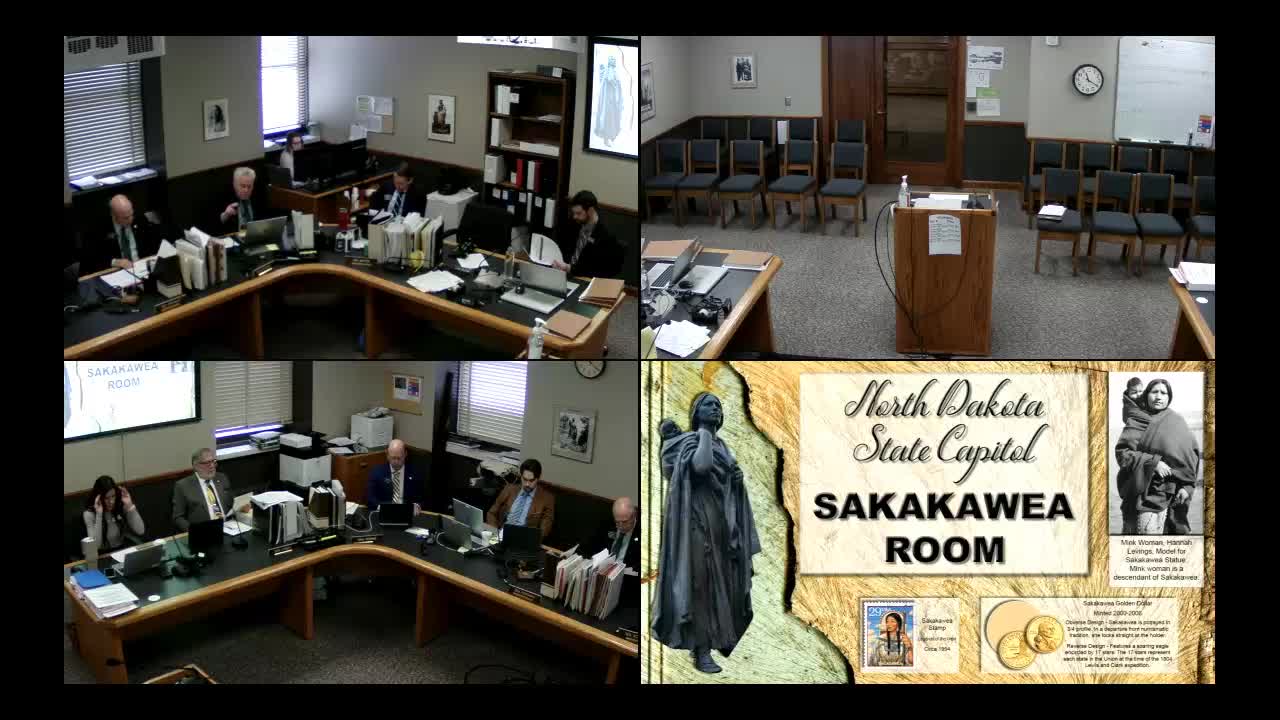
Appropriations committee trims Research Park request to $15 million, advances bill
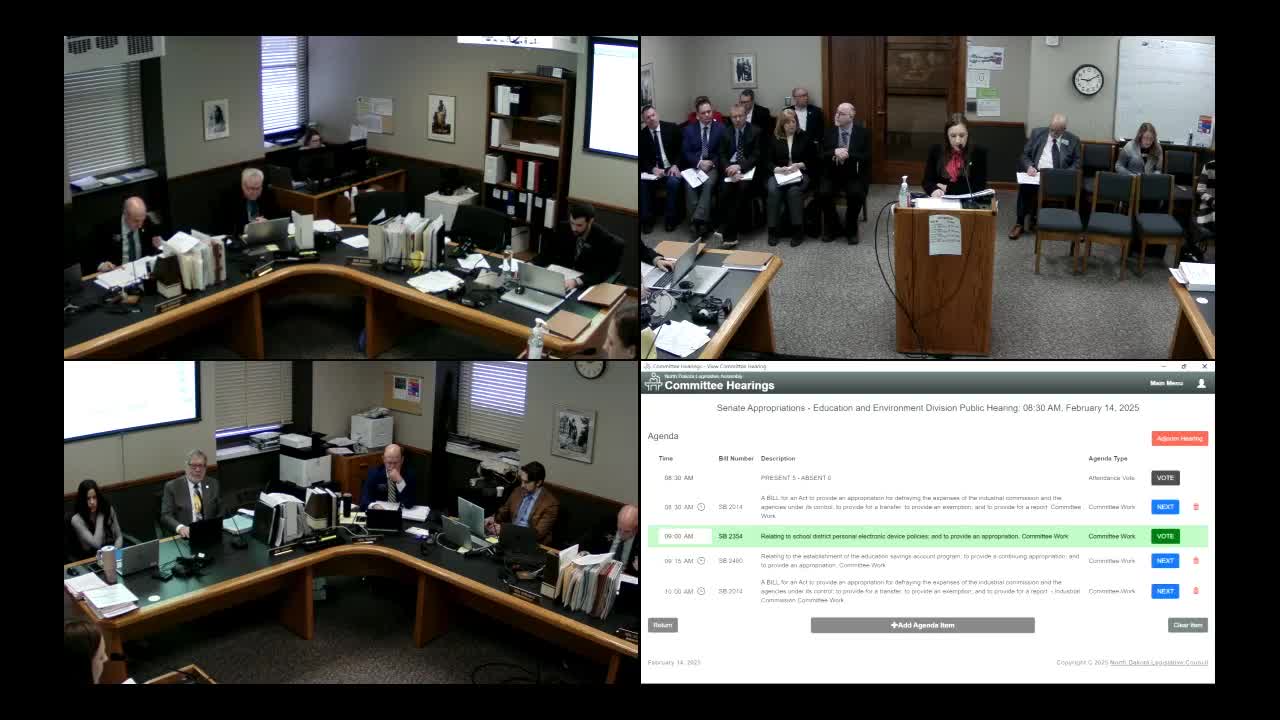
Senator presents universal educational savings account plan; committee delays action
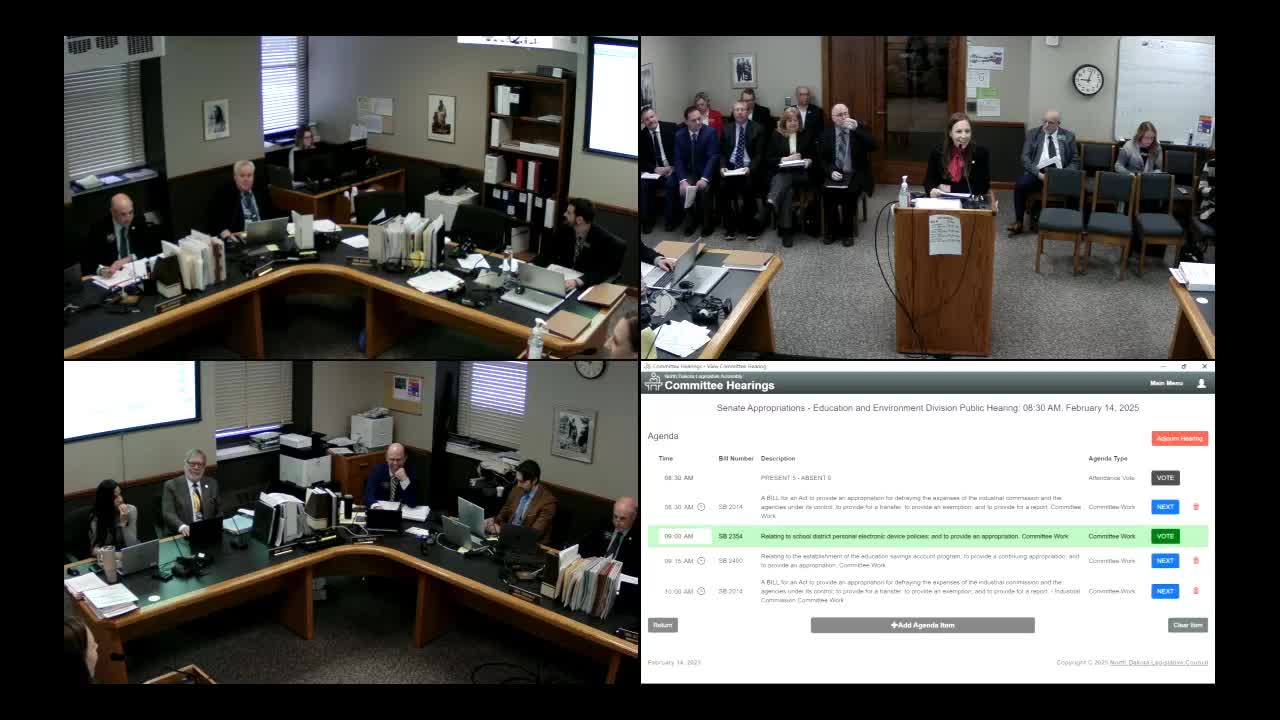
Appropriations committee strips $300,000 appropriation from school phone‑policy bill and gives it a do‑pass
